Description
Employee Training Playbook for Transportation Cybersecurity
Build a security-aware workforce with comprehensive cybersecurity training designed specifically for freight brokers, carriers, 3PLs, and logistics service providers across all operational roles.
The Employee Training Playbook provides transportation and logistics organizations with a complete cybersecurity awareness program tailored to the unique operational challenges of the industry. Unlike generic security training, this playbook addresses real-world scenarios that logistics personnel face daily, from driver mobile security and dispatch fraud prevention to warehouse access controls and executive decision-making during cyber incidents.
Complete Training Framework Includes:
- Section 1 – Program Overview & Training Philosophy:
- Logistics-specific training approach and methodology
- Microlearning principles for high-turnover workforces
- Multi-modal delivery for diverse operational environments
- Continuous reinforcement and practical focus strategies
- Section 2 – Role-Based Training Framework:
- Driver-specific security modules and mobile device protection
- Dispatch and operations fraud prevention training
- Administrative and finance payment security protocols
- Warehouse and cross-dock physical/digital security integration
- IT and compliance specialized technical training
- Section 3 – Microlearning Module Library:
- 3-6 minute focused learning sessions with logistics scenarios
- Mobile-optimized content for field personnel delivery
- Interactive decision simulations and knowledge checks
- Offline capability for limited connectivity environments
- Multi-format delivery options and accessibility features
- Section 4 – Implementation Methodology:
- Phased program launch strategy and stakeholder engagement
- Technology integration options and LMS compatibility
- Multilingual support and accessibility considerations
- Implementation risk management and success metrics
- Section 5 – Assessment and Validation Strategy:
- Knowledge assessment framework and behavioral validation
- Phishing simulation programs with logistics-specific templates
- Security behavior observations and culture measurement
- Comprehensive metrics framework and improvement feedback
- Section 6 – Training Reinforcement Program:
- Ongoing awareness campaigns and security micro-exercises
- Simulation and practical tabletop exercises
- Recognition and incentive programs for security champions
- Gamification elements and operational integration
- Section 7 – Program Management & Maintenance:
- Governance structure and roles/responsibilities matrix
- Content maintenance cycles and version control processes
- Budget and resource planning with ROI measurement
- Program evaluation and continuous improvement frameworks
- Section 8 – Incident Response Integration:
- Training-incident response alignment and feedback loops
- Post-incident learning capture and scenario development
- Cross-functional coordination and tabletop exercise programs
- Real-world case studies and lessons learned integration
- Section 9 – Documentation and Compliance Records:
- Audit-ready documentation system and record keeping
- Regulatory compliance mapping and reporting templates
- Quality management procedures and legal considerations
- Documentation access controls and retention policies
- Section 10 – Appendices and Resources:
- Comprehensive glossary of security and logistics terminology
- Sample training materials and quick reference guides
- Implementation tools and vendor resource directory
- Case studies, future trends, and customization guidelines
Training Program Specifications:
- 300+ Pages of comprehensive logistics-specific cybersecurity training content
- 10 Major Sections covering all aspects of security awareness training
- 50+ Training Modules with role-based content and assessments
- 100+ Templates & Tools for immediate program implementation
- Assessment Frameworks for knowledge validation and behavior change
- Implementation Guides with step-by-step deployment procedures
Deliverable Format:
- Comprehensive Microsoft Word (.docx) Document — Fully Editable
- Professional Layout with Headers, Tables, and Training Matrices
- Embedded Training Templates and Assessment Tools
- Cross-Referenced Content with Linked Navigation
- Implementation Guides and Customization Instructions
Industry Standards Alignment:
- NIST SP 800-171 (Awareness Training and Role-Based Training Requirements)
- CMMC v2 Level 2 (Awareness Training and Security Education Controls)
- CIS Controls v8 (Security Awareness and Skills Training Safeguards)
- FMCSA Cybersecurity Guidance (Employee Security Awareness Training)
- CTPAT Minimum Security Criteria (Cybersecurity Awareness Programs)
- SANS Security Awareness Program (Training Methodology Best Practices)
- ISO 27001 (Information Security Awareness and Competence Requirements)
- TSA Security Directives (Transportation Worker Security Training)
Best Suited For:
- Freight Brokers and Third-Party Logistics Providers (3PLs)
- Trucking Companies and Transportation Carriers (OTR, Regional, Local)
- Logistics Service Providers and Warehousing Operations
- Supply Chain Organizations with Complex Multi-Modal Operations
- Transportation Management Companies and Technology Providers
- Organizations with Distributed Workforces and Mobile Operations
- Companies Requiring Compliance with Transportation Security Regulations
- Logistics Organizations Handling High-Value or Sensitive Freight
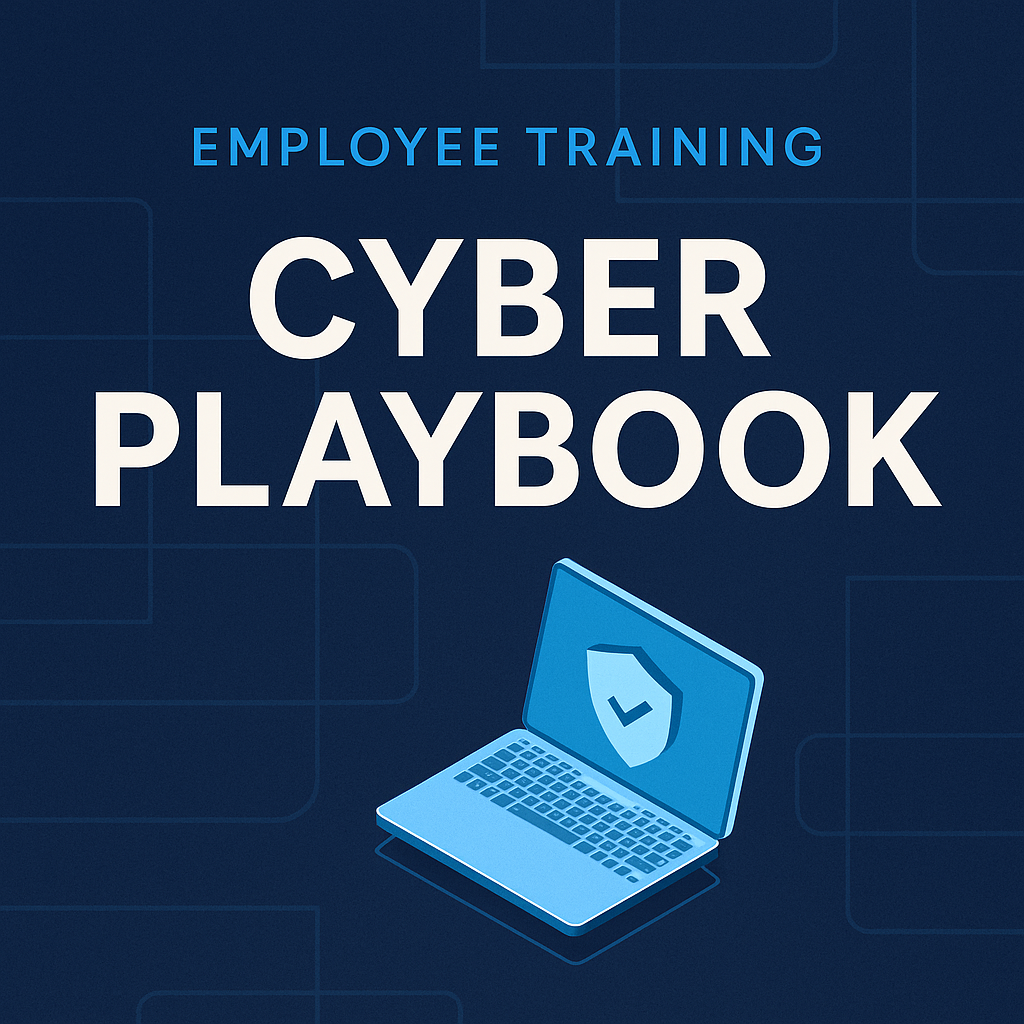
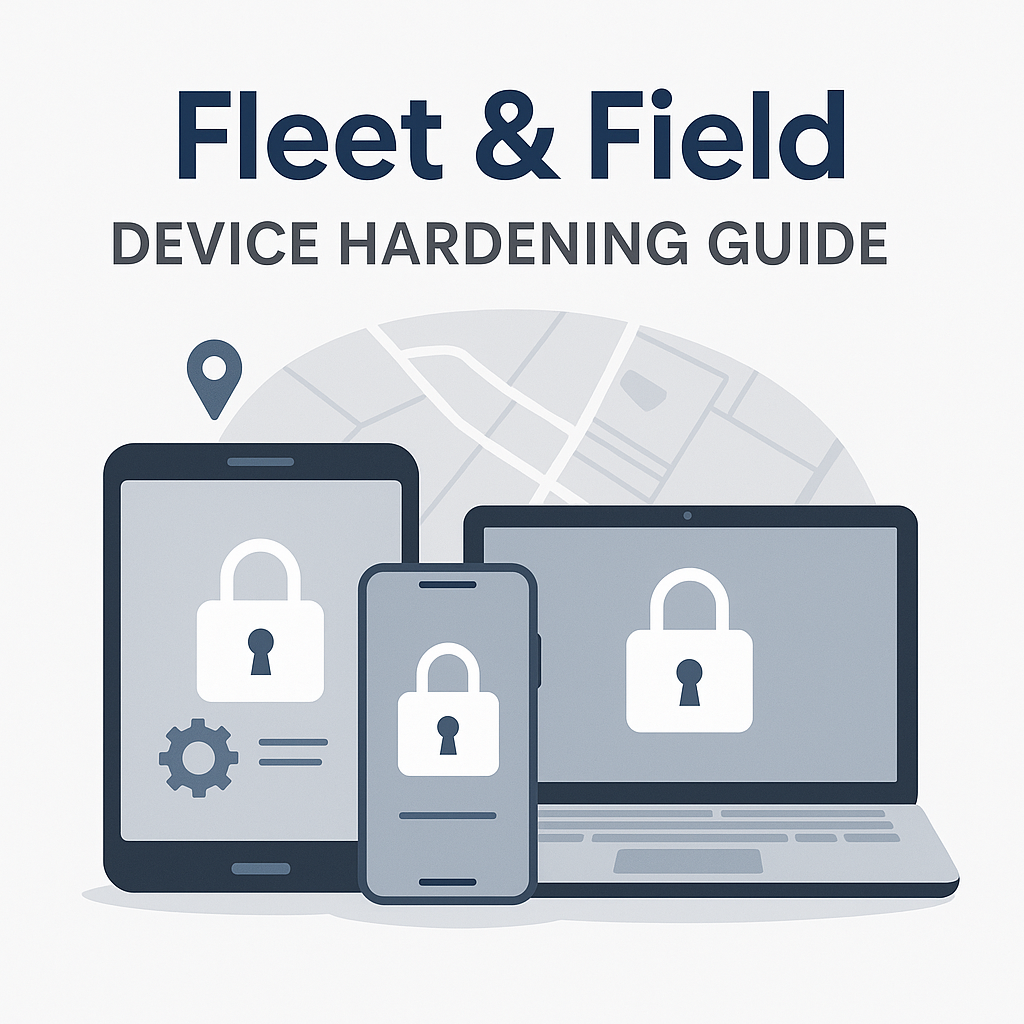
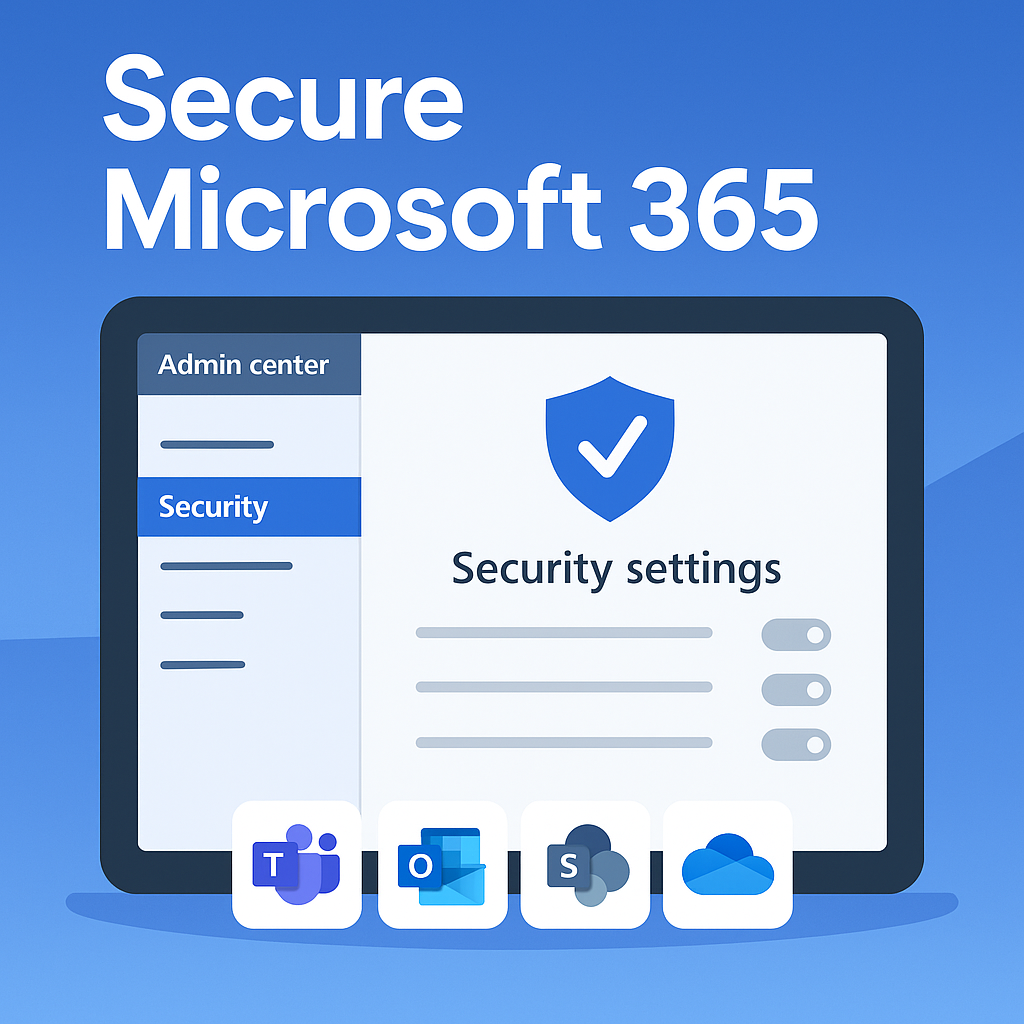
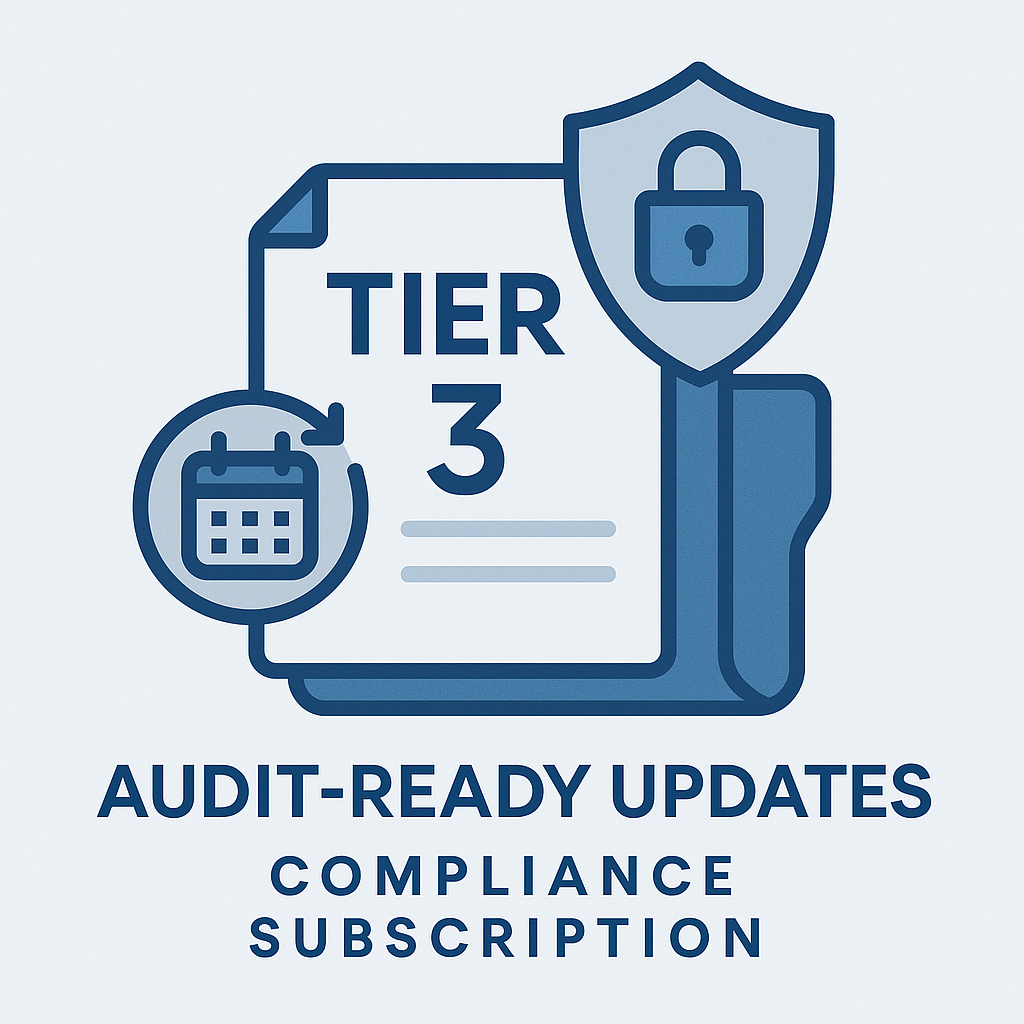
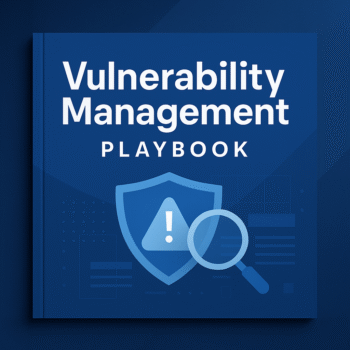
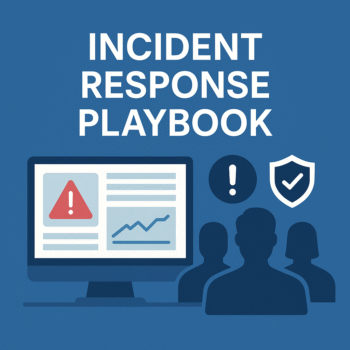
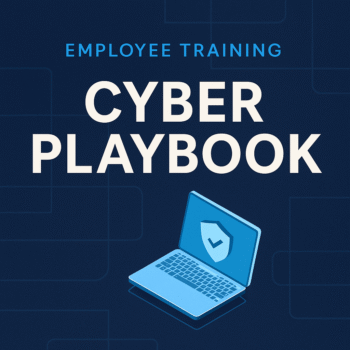
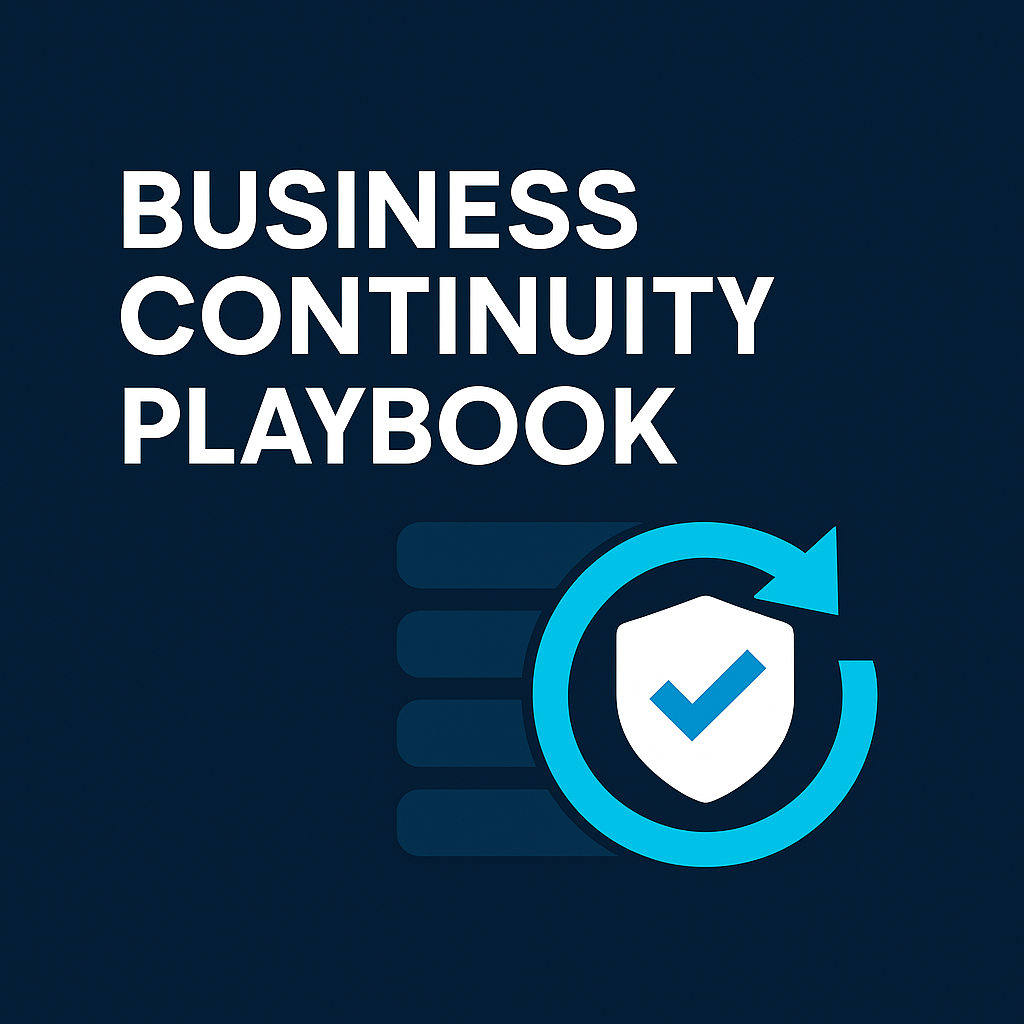
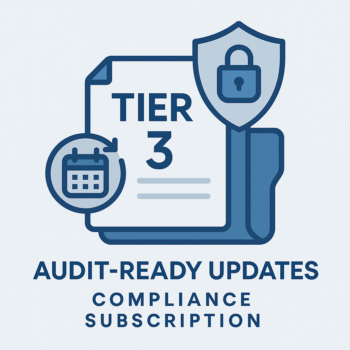
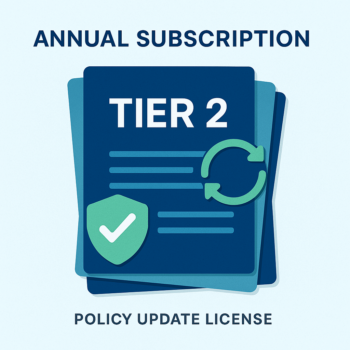
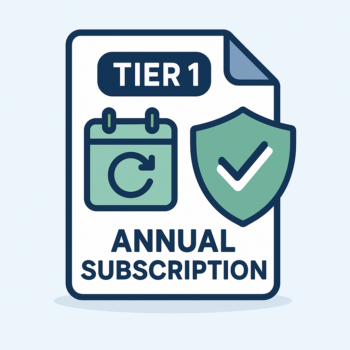
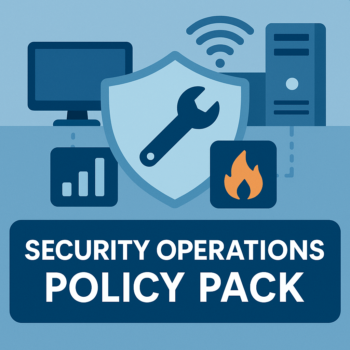
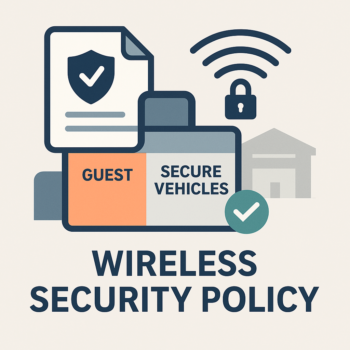
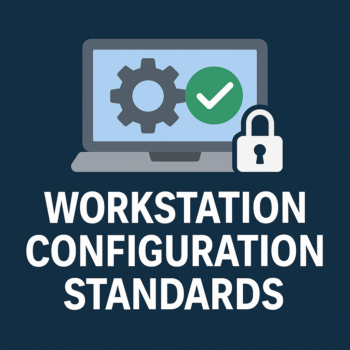
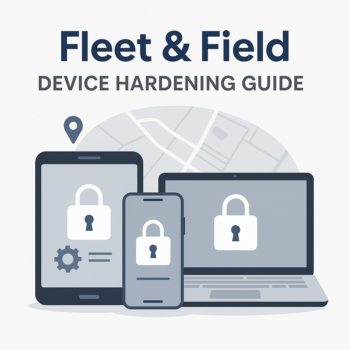
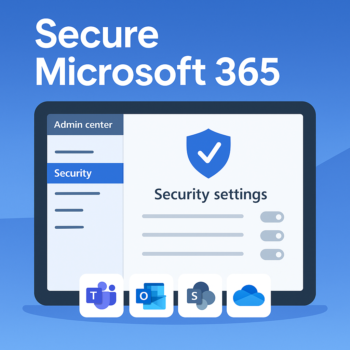
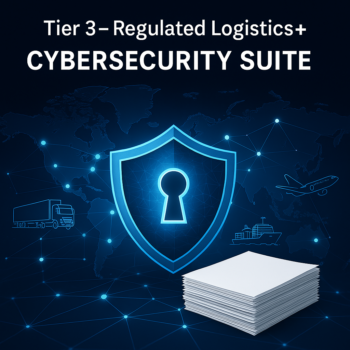
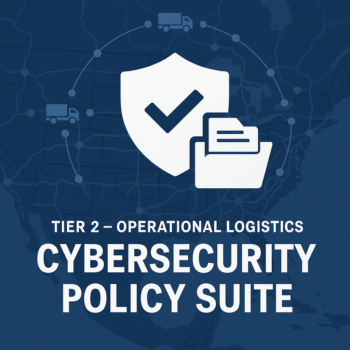
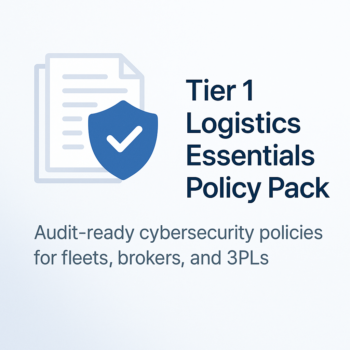
Customer Reviews
There are no reviews yet.